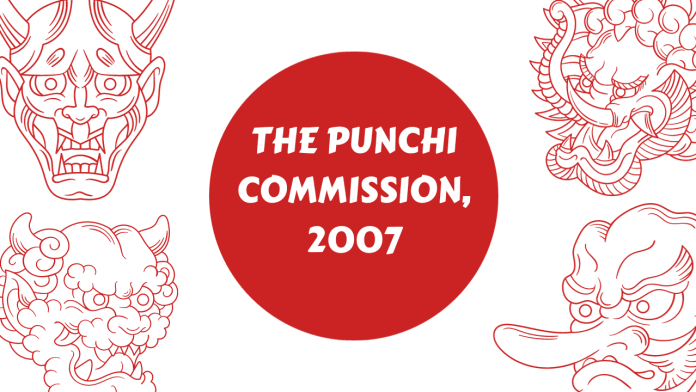At the forefront of India’s diverse and dynamic landscape, the Punchi Commission of 2007 occupies a pivotal position when it comes to governance and administrative reforms. Amidst the numerous commissions and committees dedicated to shaping the nation’s development, this article explores the Punchi Commission’s history, objectives, recommendations, and impact, providing a thorough insight into its significance.
A Glimpse into History
Historical Background
The history of India is marked by the need for administrative reforms to keep pace with its growing complexities. The Punchi Commission, officially known as the “National Commission to Review the Working of the Constitution,” was constituted in 2007 to address these challenges. The commission took its name from the distinguished jurist and former Chief Justice of India, M.M. Punchhi.
Formation of the Punchi Commission
The commission was established with the primary objective of reviewing the functioning of the Indian Constitution. It comprised legal experts, constitutional scholars, and retired judges, making it a formidable team to undertake this monumental task.
Understanding the Mandate
Objectives and Mandate
The Punchi Commission was tasked with identifying areas of the Constitution that needed reform and recommending changes to ensure a more efficient and just governance system. Its mandate covered a wide range of topics, including federalism, center-state relations, local governance, and more.
The Impactful Recommendations
Key Recommendations
The commission’s recommendations touched on various aspects of governance, leading to significant constitutional amendments. These recommendations impacted areas like the distribution of powers, electoral reforms, and the recognition of local self-government bodies.
Unveiling Controversies
Criticisms and Controversies
Like any substantial reform effort, the Punchi Commission was not without its share of criticisms and controversies. Some stakeholders questioned the scope of its recommendations and their implications, sparking debates across the nation.
The Legacy Lives On
The Legacy of the Punchi Commission
Despite the debates and controversies, the Punchi Commission’s legacy endures. Its recommendations have influenced subsequent constitutional reforms and continue to shape the governance structure of India.
Significance and Comparisons
Significance in Indian Governance
The Punchi Commission remains a pivotal moment in the history of Indian governance. Its impact and legacy make it a significant chapter in the evolution of the Indian Constitution.
Comparative Analysis
To understand its importance better, we can draw comparisons with other commissions and committees that have played a role in shaping India’s administrative landscape.
Lessons and Relevance
Lessons Learned
The Punchi Commission teaches us the importance of periodic reviews and reforms in a democratic system to address evolving challenges.
Contemporary Relevance
Even today, the commission’s work holds relevance, offering insights into ongoing debates and reforms in Indian governance.
Perceptions and Challenges
Public Perception and Awareness
The general public’s awareness of the Punchi Commission and its recommendations varies, with some aspects still relatively unknown to many.
Challenges Faced
The commission faced its fair share of challenges during its proceedings, and understanding these challenges adds depth to its history.
Conclusion
In conclusion, the Punchi Commission of 2007 left an indelible mark on the landscape of Indian governance. Its recommendations, controversies, and legacy continue to influence the nation’s trajectory. The commission’s work stands as a testament to the ever-evolving nature of governance in a complex and diverse democracy like India.
FAQs
- What were the primary objectives of the Punchi Commission in India?
- The Punchi Commission’s primary objectives were to review the functioning of the Indian Constitution, identify areas in need of reform, and make recommendations for a more efficient and just governance system.
- Can you provide examples of specific recommendations made by the commission?
- Certainly, the commission’s recommendations included changes in the distribution of powers, electoral reforms, and the recognition of local self-government bodies. These recommendations had far-reaching implications for Indian governance.
- How did the Punchi Commission impact subsequent constitutional reforms?
- The Punchi Commission’s recommendations influenced several subsequent constitutional amendments, shaping the governance structure of India. Its impact is still felt in the nation’s governance today.
- What were some of the criticisms surrounding the commission’s work?
- The commission faced criticism from various stakeholders who questioned the scope and implications of its recommendations. These criticisms led to debates and discussions across the country.
- Why is the Punchi Commission still relevant in contemporary Indian governance?
- The Punchi Commission’s work remains relevant because it offers insights into ongoing debates and reforms in Indian governance. Its legacy serves as a valuable reference point for understanding the ever-evolving nature of Indian democracy.



